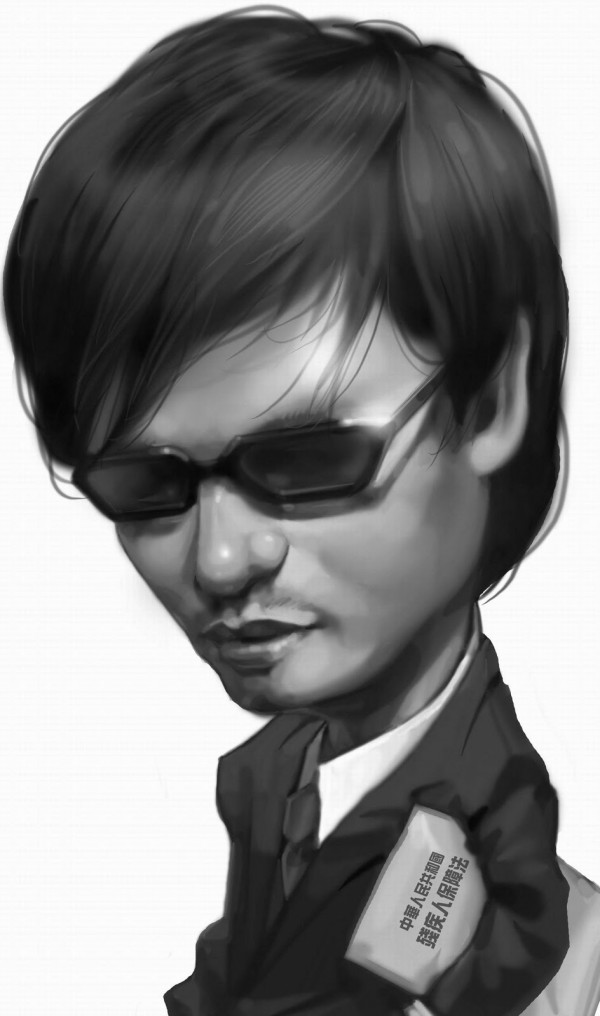NEW YORK TIMES: The escape of a blind human rights lawyer from house arrest, and apparently into the hands of American officials here, came at an excruciatingly awkward time for the Chinese leadership as it struggles to preserve a cohesive front after the spectacular dismissal of Bo Xilai, a member of China’s Politburo. The case of the lawyer, Chen Guangcheng, who is believed to be in the United States Embassy in Beijing, poses a quandary for the leadership. It is a blow to officials in charge of security and legal affairs, who oversaw the controversial treatment of Mr. Chen, and then allowed him escape their grasp. But at the same time the issue could redound to the benefit of hard-liners, who may see his escape as part of a conspiracy to embarrass China that involves the United States, several diplomats here said. For the Obama administration, the case presents multiple headaches. Mitt Romney, the likely Republican presidential nominee, has accused President Obama of essentially being soft on China, an argument that could limit Mr. Obama’s negotiating room with the Chinese over Mr. Chen. It would be nearly impossible for Mr. Obama to reach a quick resolution of the Chen case in the way that he was able to when a top Chinese police official turned up at the American Consulate in Chengdu in February in connection with the Bo Xilai case, diplomats and analysts said. Within two days, the police official, Wang Lijun, was turned over to Chinese officials, and he remains in custody. Both sides insist that he left the consulate of his own accord. In contrast, Washington has championed Mr. Chen as a human rights activist, and Secretary of State Hillary Rodham Clinton publicized his house arrest in a speech last November. MORE
TIME: The U.S. has consistently expressed concerns about the direction of human rights in China, which have regressed since the 1989 countrywide protests  that culminated in Tiananmen Square. Chen is far from alone in having suffered torture, malnutrition and isolation at the hands of Chinese security officials. But he is one of the country’s condemned dissidents whose plight has come to the attention of senior American officials and the public. Secretary of State Hillary Clinton publicly expressed alarm about Chen’s continued arrest as recently as November 2011. Actor Christian Bale, best-known for his Batman roles, was forcibly prevented from visiting Chen by Chinese authorities near the residence where he was kept under house arrest — an incident filmed and broadcast to an international audience. MORE
that culminated in Tiananmen Square. Chen is far from alone in having suffered torture, malnutrition and isolation at the hands of Chinese security officials. But he is one of the country’s condemned dissidents whose plight has come to the attention of senior American officials and the public. Secretary of State Hillary Clinton publicly expressed alarm about Chen’s continued arrest as recently as November 2011. Actor Christian Bale, best-known for his Batman roles, was forcibly prevented from visiting Chen by Chinese authorities near the residence where he was kept under house arrest — an incident filmed and broadcast to an international audience. MORE
HUFFINGTON POST: Bale, who will star in the upcoming Chinese film “The Flowers of War,” went on an eight-hour drive with a CNN crew to visit Chen in the city of Linyi, where he’s been held in his own home since September 2010. When Bale approached Chen’s house, he was met by an escalating number of guards as he protested being prevented from entering Chen’s house. Punches were thrown and shoving ensued as Bale, along with the CNN camera crew, tried to push his way through to the house. Chen, a women’s rights activist, was originally arrested in 2006 and sentenced to four years in prison for “damaging property and organizing a mob to disturb traffic.” Video of authorities beating him in his own home leaked to the web in 2010, causing outraged responses from civil rights groups. “I’m not being brave doing this. The local people who are standing up to the authorities and insisting on going to visit Chen and his family and getting beaten up for it and my understanding is getting detained for it — I want to support what they’re doing,” Bale told the CNN crew. MORE
ASSOCIATED PRESS: His treatment by local authorities had seemed especially bitter and personal. Even after he served four years in prison on charges his supporters say were fabricated, local officials kept him and his wife confined at home since his release in September 2010. They did so despite lacking any legal basis, prevented outsiders from visiting the family and occasionally beat him and his wife up. Burly men patrolling the village and stationed on a main road leading into the community have beaten up would-be visitors to Chen’s house, thrown stones at reporters and threatened diplomats. Central authorities had not shown much inclination to stop the authorities in Shandong province’s Linyi city, which oversees Chen’s village of Dongshigu. But the Chinese government has a long history of ignoring its own laws. “The fact is that the Chinese central government of President Hu Jintao and Premier Wen Jiabao passively or actively condoned, if not outright encouraged local government officials and security forces in Shandong to victimize Chen Guangcheng and his family for years,” said Human Rights Watch researcher Phelim Kine. MORE

